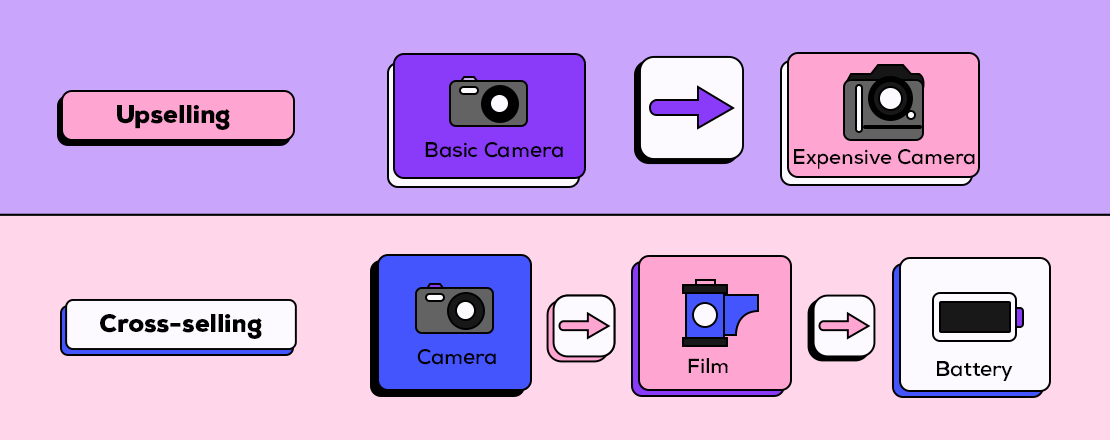All too often, business leaders struggle to successfully delegate work. The Harvard Business Review notes that executives tend to “hoard” work instead of dividing it among their colleagues and partners. It’s understandable — people tend to feel ownership over their work and they can be reluctant to hand it off to someone else. The truth is that partnerships are the secret to providing the best possible products and services for your customers. Entering into strong partnerships allows you to provide services that are too complex to build yourself. Strategic partnerships also free up your employees’ time so that they can focus on the work they do best, instead of trying to do it all.
Not sure where to begin? This article will explore reasons why you would partner and also how you would choose a partner. It looks at when it makes more sense to build up capabilities in-house, too. Keep reading to learn more.
Deciding When to Buy, Build, or Partner
Maybe you’ve already decided that your business would benefit from more partnerships. Now, you’re faced with answering the following questions:
- When, exactly, should you do your work in-house?
- When should you outsource your projects?
- When is it a good idea to have your partners or vendors tackle some of your work?
If you’re looking to expand your business technologically, you might also wonder: “Should I buy or build my technology?” Figuring out when to partner with another company and when to build services yourself can be difficult. Unfortunately, there is no easy answer to this question — it’s going to look a little bit different depending on your situation. However, some guidelines hold true in most cases and across different business environments.
Relying on Core Competencies: Does This Still Work?
The idea of “core competencies” is a classic theory in business management. The theory states that to succeed, every business should focus on the capabilities that make up its unique strategic advantage. For example: If you are running an ice cream parlor, you should focus on making the best ice cream possible, instead of trying to add on a salad bar.
The core competencies model is still relevant. However, it no longer fully applies to today’s businesses. Today, businesses face increased competition and must appeal to a broader market than ever before. Customers also expect near-instant service and regular updates on products, which has further changed the field for businesses. More and more, customers are also coming to expect a high level of personalization. All of this means that successful companies cannot rely only on their core competencies. They must go a few steps beyond, offering their customers a broader range of goods and services.
Building Core Competencies Beyond Current Capacity
In many cases, businesses can successfully build core competencies beyond their current capacity. For this to succeed, a business needs to carefully assess where its strengths lie and compare those strengths against what other companies in the same field are offering — and then make sure that they surpass the competition’s offerings. Businesses also need to turn their abilities into organization-wide strengths. In other words, the company’s success should not rest on the skills or knowledge of just one individual or team. Those abilities should be a standard for the entire organization.
It is worth noting that there is a built-in limit to how many core competencies any one business can develop. Of course, that limit varies depending on the size and make-up of each company. However, every business has its limits. That’s where partnerships come in.
Making Partnerships to Provide Added Value
Finding the best types of partnerships can take your business well beyond your core areas of competence. The business landscape has changed drastically in recent years. Today, customers expect a higher level of service, as well as a consistently high level of quality in every facet of a business offering. In order to succeed, businesses must be able to offer their customer a top-of-the-line experience, from start to finish. That level of service is really only possible when you build successful partnerships with other businesses.
The first step to building partnerships is evaluating which services your customers truly value. Which of those services does your business provide already? Which services do you have the capacity to provide, even if you don’t already do so? From there, you should be able to isolate the services that your business cannot provide on its own. Anything that you can’t offer your customers is a prime possibility for outsourcing through partnerships.
Choosing Partnerships With Customers in Mind
You may be wondering how to choose a partner for your business. Always remember that your goal is to make it possible to offer your customers the very best services and experiences possible. Below are a few qualities you should always look for in your partner.
Ease of Integration
Does this partner’s offering mesh well with your business? Can you integrate it seamlessly into your current offering? Remember that your goal is to provide a one-stop-shopping experience for your customers, in which you’re able to meet all of their needs seamlessly. You don’t want your customers to have a jarring experience or to feel like they have to keep jumping from one platform to another.
Ease of Customization
Look for offerings that are easy to customize to meet the specific needs of your business and its customers. You’ll want to make your partner’s offerings fit your business so well that they almost seem as though you created them yourself. The ideal partnership is one in which you feel thoroughly confident about all of the products and services that your partner provides. You should be able to stand behind them and offer them with pride to your customers. One sure way to achieve that is by making sure that you have a high level of built-in customization.
Concluding Thoughts on Partnerships
In today’s business landscape, partnerships are no longer an option — they are a near-necessity. Making sure that your customers are happy and well-served requires layers of service which no business can provide on its own. That’s why partnerships are so important. Of course, no business should enter into partnerships lightly. But with the right criteria, and a discerning eye, it’s easy to build successful and profitable connections that will help your business reach its maximum potential.















